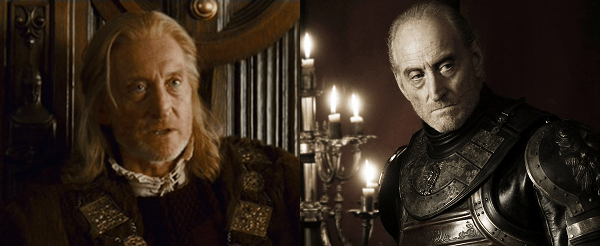
X-Men: First Class is a fantastic film that succeeds in both it’s main goals. While it is very entertaining on its own, it also manages to clear the bad taste that X-Men: The Last Stand and X-Men Origins: Wolverine left with audiences. Matthew Vaughn infuses the film with retro charm, lets the ensemble cast shine and pleases both fans and novices.
The fact that First Class began development as X-Men Origins: Magneto is apparent: this is Magneto’s film. Michael Fassbender is captivating as Erik Lehnsherr, with the cool precision of Connery’s Bond in his dogged pursuit of Nazis. When the scripts falters, it is because the “first class” elements distract from Magneto’s journey. In the comics (and films, for that matter), Magneto has been more captivating than his counterpart, Xavier, a contrast never clearer than when Magneto is doing wet work while Xavier chugs a yard of beer.
While Magneto is the star, other characters and performances are very rewarding, as well. Jennifer Lawrence’s Mystique is richly drawn, with an arc that is a perfect vehicle for the film’s central issue: mutant pride and rights in the world at large. While Xavier would have his surrogate sister hide her blue skin and love interest Beast would actually try to “fix” her appearance, only Magneto appreciates her true form. I didn’t find her ultimate decision to be out-of-character or abrupt; Mystique is in the same crossroads as Rogue was in the first X-Men, striving to accept herself. The only veteran in the youthful ensemble, Kevin Bacon, handles Sebastian Shaw with ease, almost hammy in his over-the-top evilness.
Outside of pure film criticism, much of the Internet discussion of First Class concerns the film’s social message. Having understood the X-Men as an analogy for civil rights (with Xavier and Magneto standing in for Martin Luther King, Jr. and Malcolm X, respectively), the films pay little attention – as others have noted – to the civil rights movement, even though it takes place smack in the middle of it (1962, before “I Have a Dream” but after the boycotts and the sit-ins). As in the earlier films, the mutant pride plays more like gay pride. The parallel was played for ironic laughs in X2, with Iceman coming out to his parents (“Have you tried not being a mutant?”); here, Xavier accidentally outs Beast. For his part, Vaughn has said that the issue was simply too big to add to an already busy film, and has hinted that the next could deal with civil rights and the Vietnam War.
Larger than whitewashing the civil rights issue is how Magneto, usually understood to be a fanatic and villain, makes the more compelling argument. Xavier’s vision of peaceful co-existence requires mutants to stay in the closet: don’t rock the boat and wait for acceptance. Magneto, constantly haunted by the Holocaust, refuses to live in the shadows, betray his identity, and listen to those obeying orders. Forgive the pun, but Xavier doesn’t have a leg to stand on.
There is also the predictable nerd trap: how First Class fits into continuity, both comic and film, and whether this it’s a prequel or a rebooting of the franchise. The first issue is dismissed very early on: a title card places the action on Earth-917, to separate it from the mainstream continuity of Earth-616 (Marvel uses a parallel universe convention for this very reason, i.e. to keep fans happy). This nod should be enough to explain why characters are developed how they are. The team assembled by Xavier and Magneto isn’t the “first class” of 1963; the film’s Sebastian Shaw incorporates elements of evil geneticist Mr. Sinister; neither Azazel or Riptide have ever mattered much in the comics. Credit the filmmakers for acknowledging the different universe, and for realizing that diehard fanatics are unable to be completely satisfied.
The prequel versus reboot issue is more complicated. Matthew Vaughn has wavered on how to define his film (to reboot, or not to reboot). Like the Star Wars prequels, there are deliberate references to the preceding films, coupled with a series of minor and major continuity errors. Without spoiling anything, there are a few very obvious references to the Bryan Singer/Brett Ratner trilogy. But can’t these just be fan service for fan service’s sake? The moments are audience-pleasers; isn’t that the point? For what it’s worth, I think it’s a bit of both prequel and reboot, giving the filmmakers the most leverage to tell stories without being hamstrung by the existing films.
How the X-Men franchise continues from here is a mystery, but I have high hopes. Rather than the hopeful note on which the first film in a trilogy usually ends, First Class feels more like a dour midpoint, a la Empire Strikes Back. Xavier is left a broken man, having lost his closest friends and being forced to start from scratch; Magneto’s dark forces are ascendant. It’s an ending that should have audiences begging for more.













